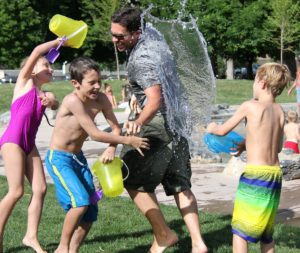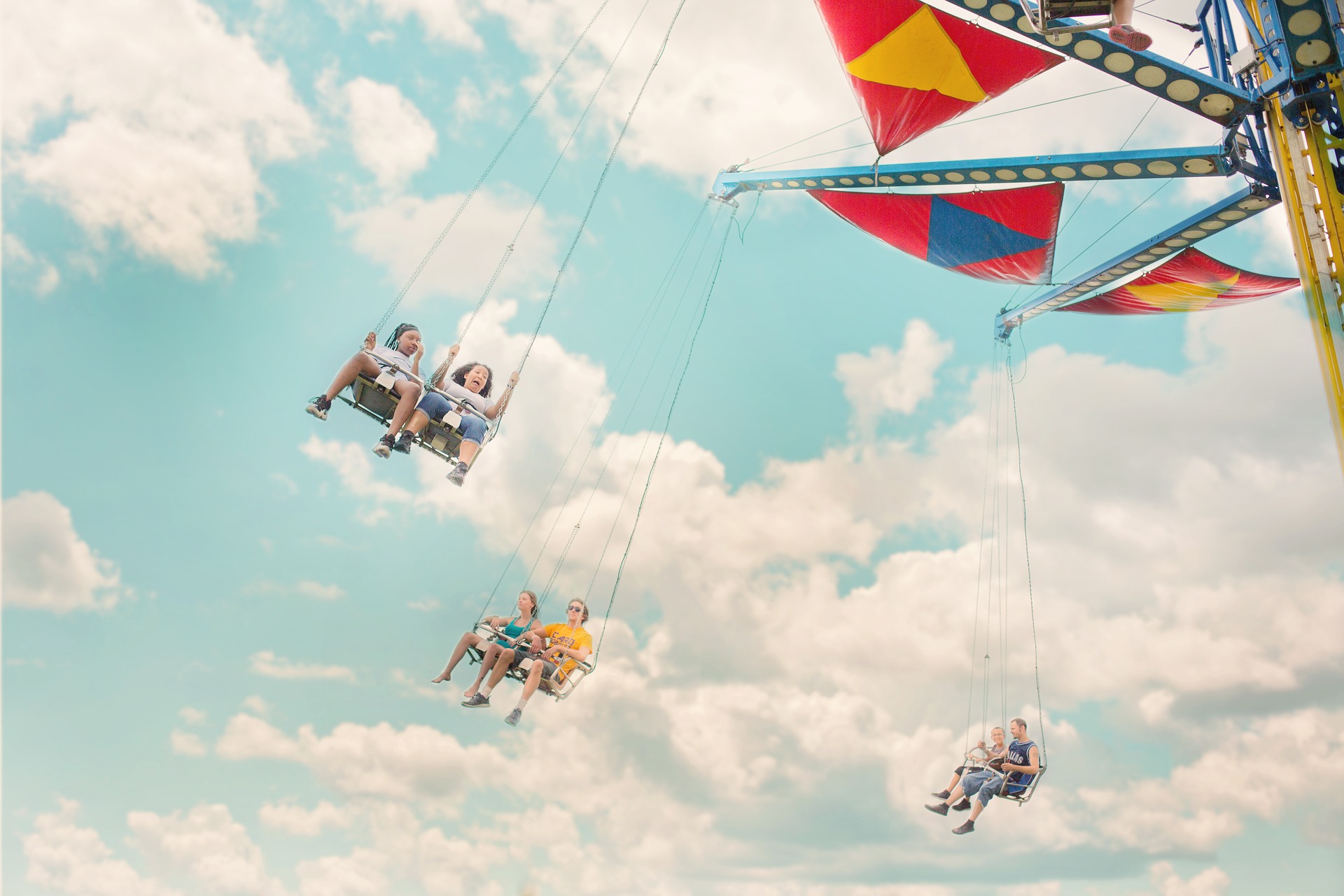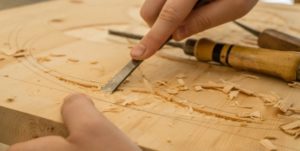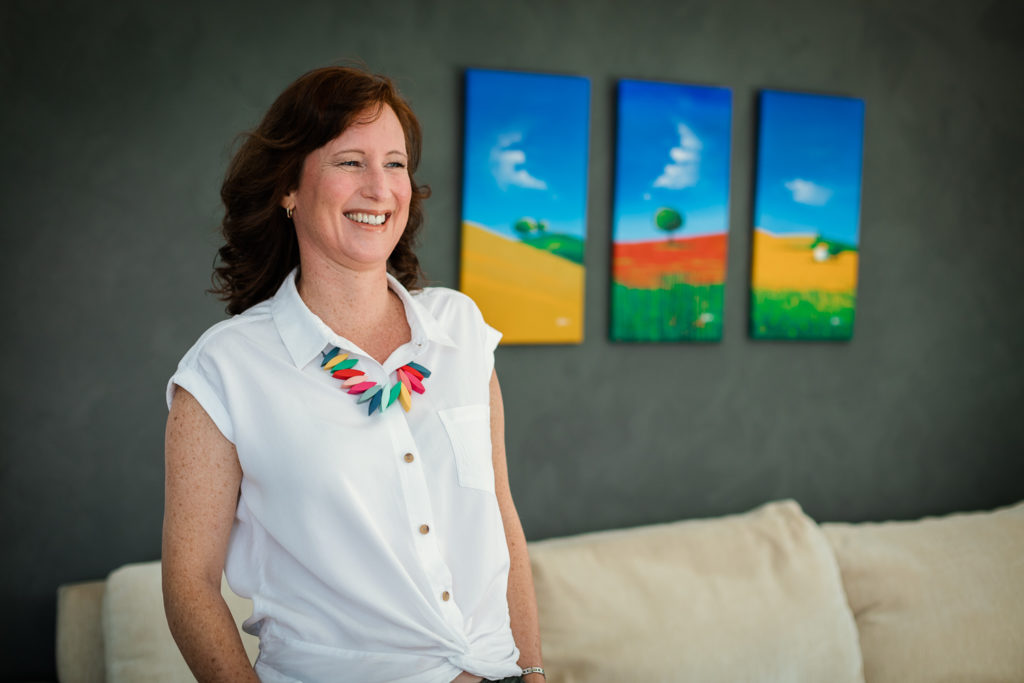
Relish the Happiness of Playing Solo
The fun doesn’t have to stop when you’re alone.
Your fun sensor doesn’t have to switch to ‘out of office’ just because friends aren’t available. Being alone can release pathways to new and different adventures, where your heart and mind can feast on a pleasure exchange reserved solely for you.
‘Play is being joyfully immersed in the moment, and as adults, we rarely do that.’ – Catherine Tamis-LeMonda

Image credit: Clayton Ewerton from Unsplash
What fills your soul?
I’m not asking what you’re good at. What do you love doing?
I love colours and I love to paint, but I’m no maestro. I have a feeble awareness of textures and effects achievable with paint, but these are not important when I’m painting for fun because the outcome is not for scrutiny, it’s just for me. It doesn’t have to look like the image in my head. In fact, it rarely does. Sometimes there’s no image in my head at all – it’s just about the joy of splooshing colours together. Like the joy of creating the word splooshing.
As a kid, what did you do without being asked?
What did you do before school and responsibilities dictated your attentions elsewhere?
Did you love riding your bike or climbing trees?
Were you forming secret societies with the neighbourhood kids?
Did you love making a mess in the kitchen?
These could be clues as to what will bring you joy in the now.
Art links me back to the free part of my soul. Painting, drawing, moulding, building or crafting. These were things to which I simply gravitated in my spare time, because they filled my tank and let me just be me.
3 Proven Traits of a Playful Adult
The ‘Adult Playfulness Trait Scale’ uses a series of questions to work out how playful you are. It was designed using a combination of personality research and play literature. The conclusion landed on three human abilities that work as our internal play generators.
- Are you a fun seeker?
Is Fun a VIP in your life? When you see fun as important, you’ll take the initiative to make it happen. And when fun happens to you, you’ll value it enough to embrace it rather than push it away.

Image credit: olives from Pixabay
- Can you break the rules or do you let worry about consequences inhibit your fun?
There are always barriers to feeling free enough to have fun. You might worry about what people will think. You might have been raised to think that playfulness shows immaturity. You might believe you have no time for play. A playful adult will be able to navigate these obstacles and break through to the fun side.
- How spontaneous are you?
Will you do something on impulse? Playful adults tend to go with the moment into unplanned activities. They allow a certain amount of careless flitting after shiny things – just for the fun of it.
These three playfulness factors are partly linked to our personality. Some people simply are more impulsive and therefore will more easily follow pleasure pathways. On the flip side, some of these playfulness factors are learned, so they can be nurtured. If we want to, we can get better at being a playful individual.
Why Nurture Your Ability to Play Solo?
- You think differently in a different space.
Some of your unique interests may not be shared by those with whom you hang out. A run on the beach might be in your giddy dream zone but it’s someone else’s worst nightmare. Solitary play means you can get lost in what you love to do without worrying about others.
- It’s called ‘flow’.
That zone where time disappears and you become totally immersed in the enjoyment of what you’re doing. It’s a form of play. Science shows us that when you’re in flow, you enter into deep concentration and the chatter of your brain dies down. In this time your brain increases its information-processing speed, stretching your mind to accomplish something. The result can be a feeling of being happy (even ecstatic), motivated and fulfilled.
Image credit: Alex Harvey from Unsplash
(
- You aren’t dead.
You need to have spaces in which you, as an individual, can light up and sparkle, relishing being alive. Responsible tasks and tedious jobs don’t have to take up all the space. Finding these channels of fun wards off depression and facilitates happiness.
“How we spend our days is, of course, how we spend our lives.” – Annie Dillard.
- Play is a way of being kind to yourself.
Taking time out to relax with something that brings you joy reduces stress hormones. It’s a form of mindfulness, which strengthens your ability to cope with stress, restores your creative energy and grows your capacity to sustain joy.
- Your 10-year-old self will thank you.
Remember when you couldn’t wait to be an adult because then you could do whatever you wanted? You’re that adult now. You get to choose to eat dessert before dinner, or go to bed late, or to buy a plane ticket to the Great Barrier Reef, or to go to a class of your choosing. Don’t let your younger self down.
9 Playful Ways to Feed Your Heart and Soul Through Play
Invite Fun as a VIP
- Collect quotes, posters, digital wallpaper or cartoons that make you laugh. Dot them around your living spaces.
- If cooking meals each night is becoming tedious, try a new recipe once a week or once a month.
- Brighten up your commute to work (for those of you still commuting!). Find a fun game, or challenge, or comedy podcast to make it enjoyable. Make it your laugh-out-loud or sing-out-loud time.
- Build short play breaks into your day – even your working day. Five or ten minutes are all you need to strum a ukulele, play on a balance board, make an origami creation, spin a yo-yo, toss juggling balls, or scoot around the block or the building on a grown-up kick scooter. Set an alarm to get into the habit, if you need play reminders at first.

Image credit: Anastasia Vityukova from Unsplash
Break the Rules
Change something you loathe into fun. Anything can turn into play if we adopt a playful mindset.
- Getting fit doesn’t have to be punishment. Find a fun way to work up a sweat. Do an obstacle course in your local park. I recently discovered the ‘Healthy and Active’ section on my council website, which includes group exercise in the park, kayaking and dragon boat racing. Your avenue might be an adult dance class or martial arts.
- Dance and sing while you clean. A little butt-wiggling at the sink, or taking full advantage of the acoustics while cleaning the shower, or a few extravagant twirls dancing with the vacuum-cleaner, can turn dull tasks into entertainment. If that’s not your thing, then at least make sure you listen to a comedy or feel-good music while you’re doing the dirty work.
- At work, find desk-sized versions of game favourites – Scrabble, Jenga, Connect Four. Go and disrupt a colleague to play with you if needed.
Don’t Overthink It
- Disengage from devices and digital connection. Give yourself permission NOT to put your fun activity on social media, but to fully absorb, enjoy and hoard your magical moments to yourself. It will free you to fully engage with what you’re relishing, without worrying about what others think.
- Hide a secret stash of things that fuel your frivolity. A toy box, of sorts, that you can rumble through whenever you need a pick-me-up. It could include:
-
- photos
- fun childhood toys (poppers, silly string, a Slinky, bubbles)
- sensory things that feel nice (vanilla scented anything, a foot soak, a stress ball, a massage roller)
- a kooky musical instrument like a kazoo
- something crafty like a pack of washi tape spools or a sand art kit.
- an inspirational read – a poem, or book of quotes, or a favourite story
Collect these ‘shiny things’ over time. Don’t think too hard about whether it should go into the box or not – no justification is necessary.

Image credit: Braydon Anderson from Unsplash
Over to You
This blog series began because you, my readers, almost unanimously voted for the topic of relearning to play. Perhaps this pandemically-challenged year has left us all crying out for a good dose of fun as relief from the tensions of constant change.
A little recap:
- A playful home brings out your most authentic self
- Playfulness cements positive emotions. The more you learn to play, the more easily you can sustain moments of joy.
- Play lights up your brain. It stimulates your thinking and creativity, making you a better problem-solver and improving your physical health.
- Playfulness with others invites connections and builds relationships.
- Play on your own is a way of being kind to yourself and filling up your soul.
As this series comes to a close, I hope that rediscovering the benefits of a playful life has given permission once again to dally daily in the delights of play.
Please tell me about it.
- Of the adult playfulness traits, which one is easiest for you?
- What activities are you going to try to expand your individual play repertoire?
- What was your best insight from this blog series?
Inspirational References:
- ‘Validating the Adult Playfulness Trait Scale (APTS)’, by Shen, Chick and Zinn, American Journal of Play, Spring 2014
- I love this book by Meredith Sinclair: Well-Played: The Ultimate Guide to Awakening Your Family’s Playful Spirit. A number of my ideas for these blogs have come from her insights.
- Adults Need Recess Too
- What is a flow state and what are its benefits?, published by Headspace.

















